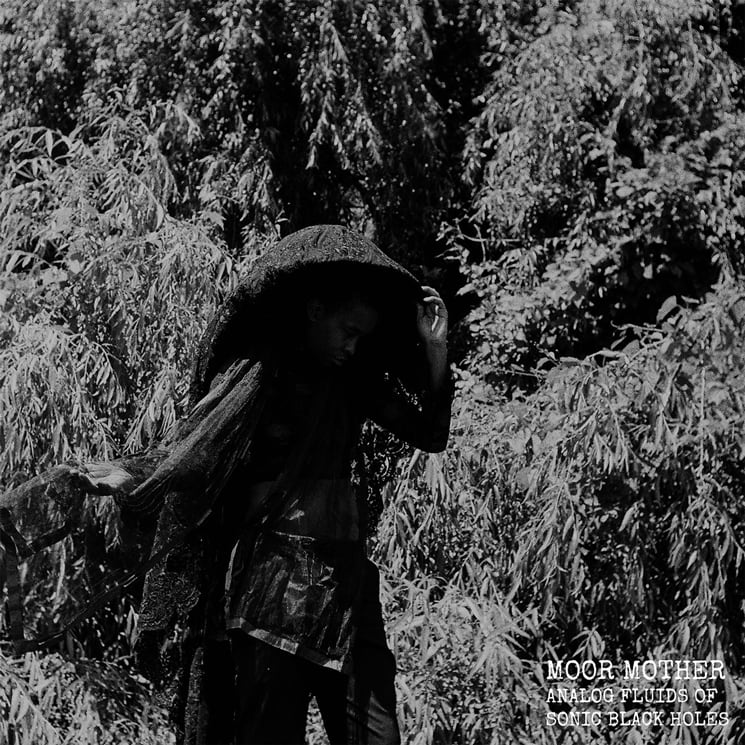As an artist, poet and musician, as well as the one-person prodigy behind Moor Mother, Philadelphia's Camae Ayewa creates music that is intentionally hard to digest. Known for her collaborations with the New York hardcore punk titans Show Me the Body and her intense debut album Fetish Bones, Moor Mother's artistry involves getting deep into the guts and grime of the socio-political state of America and converting it into Afro-futurist techno-gospel — an auditory experience that is as odd and unique as one might assume.
On her second studio album, Analog Fluids of Sonic Black Holes, Ayewa is back to her cyberpunk ways, creating dense and dark atmospheres that are sometimes thought-provoking, other times cringe-inducing.
The album opens with "Repeater," a deeply disturbing introduction to Moor Mother's strange world, with shrill violin, ritualistic chanting and dark, but beautiful stream-of-consciousness poetry. Next is "Don't Die," which is a disorienting voyage through white noise and Camae Ayewa wailing the words "don't die" with such palpable urgency that it makes hair stand straight.
The album becomes increasingly morbid, but even more confusing, as it progresses. "After Images" is a dissonant techno jam that incorporates heavy saw noises and obscure choir samples, while "Black Flight" rhythmically explores black power and black oppression, but creates silence midway through for guest Saul Williams to rap surreal poetry about strange and distant lands.
Analog Fluids of Sonic Black Holes does not always work, but in the moments where it does, it is bound to sit in your stomach for a long time.
(Don Giovanni)On her second studio album, Analog Fluids of Sonic Black Holes, Ayewa is back to her cyberpunk ways, creating dense and dark atmospheres that are sometimes thought-provoking, other times cringe-inducing.
The album opens with "Repeater," a deeply disturbing introduction to Moor Mother's strange world, with shrill violin, ritualistic chanting and dark, but beautiful stream-of-consciousness poetry. Next is "Don't Die," which is a disorienting voyage through white noise and Camae Ayewa wailing the words "don't die" with such palpable urgency that it makes hair stand straight.
The album becomes increasingly morbid, but even more confusing, as it progresses. "After Images" is a dissonant techno jam that incorporates heavy saw noises and obscure choir samples, while "Black Flight" rhythmically explores black power and black oppression, but creates silence midway through for guest Saul Williams to rap surreal poetry about strange and distant lands.
Analog Fluids of Sonic Black Holes does not always work, but in the moments where it does, it is bound to sit in your stomach for a long time.
